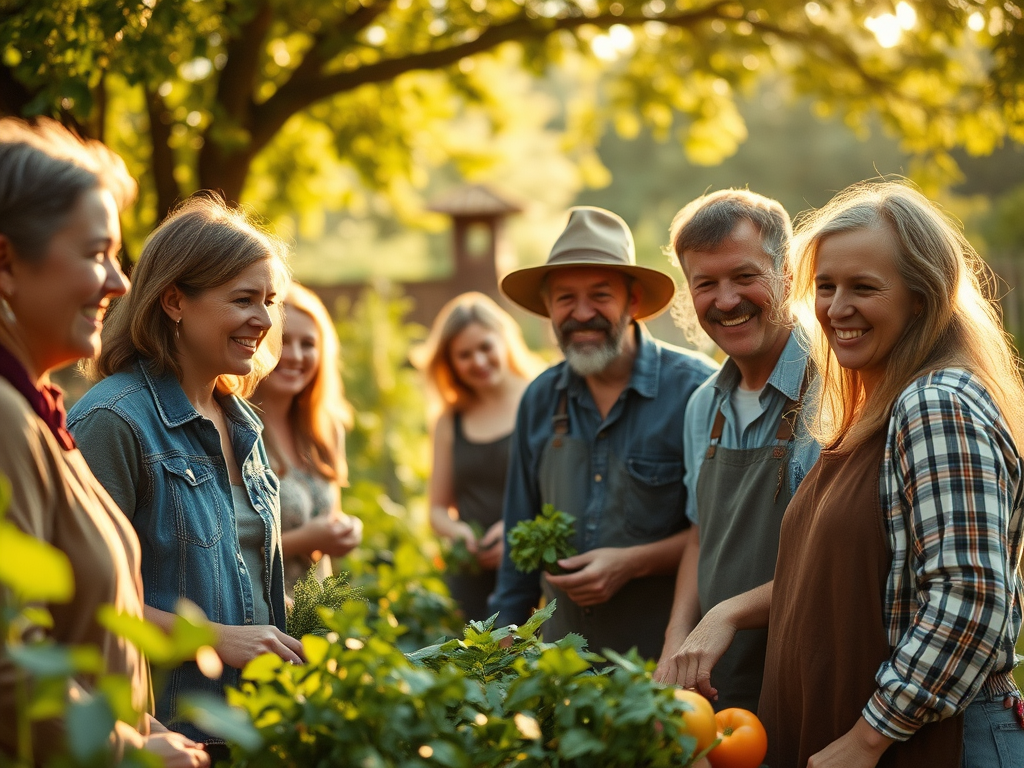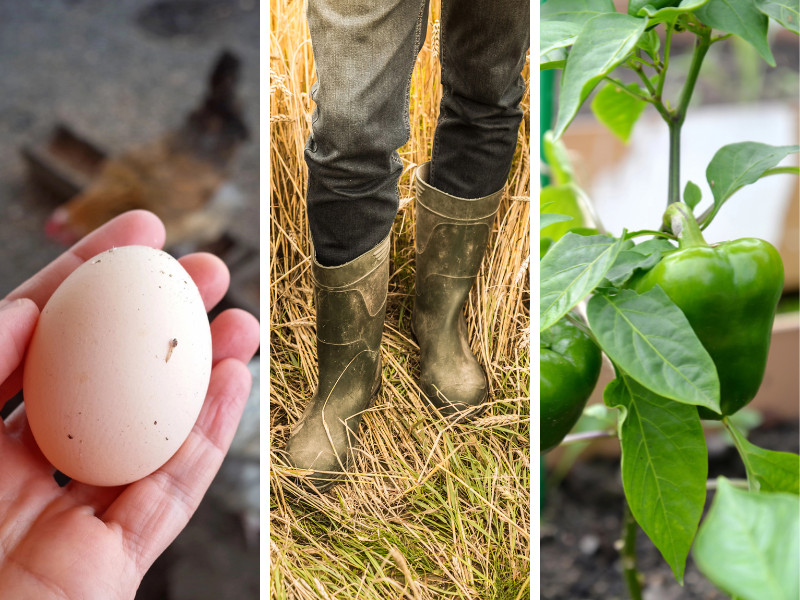
Barter & Bloom: Grow Your Homestead Through Skill-Sharing
Homesteading. The word conjures images of sun-drenched gardens, clucking chickens, and a life lived closer to the earth. But let's be honest, those idyllic pictures often come with a hefty price tag. Building a self-sufficient life can be expensive, from purchasing land and livestock to acquiring the tools and knowledge needed to make it all work. I remember when our well pump went out last spring. The repair bill was a shock, and it seemed like our entire budget was going down the drain, not just the water in our well. That's when I truly realized the power of community and thinking outside the box. Our neighbor, a retired plumber, offered to help in exchange for a season's worth of fresh eggs. It sparked a new way of thinking: bartering.

Bartering goods and services and skill-sharing are fantastic alternatives to always reaching for your wallet. It's about building resilient local networks, leveraging your existing skills, and tapping into the collective knowledge of your community. It saves you money, fosters stronger relationships, encourages resourcefulness, and strengthens the local economy. So, ditch the store mentality and let’s explore how bartering can help your homestead bloom!
Identifying Your Homestead's Barterable Assets
Before you can start bartering, you need to take stock of what you have to offer. Don't just think about physical goods; consider your skills, time, and even access to resources.
Goods: This is the most obvious category. Do you have excess produce from your garden? Are your chickens laying more eggs than you can eat? Do you make homemade soaps, candles, or other crafts? Even small amounts of extra can become valuable barter items. I know one homesteader who trades her elderberry syrup for help with fall leaf cleanup.
Skills: What are you good at? Are you a whiz in the kitchen? Can you fix a leaky faucet? Are you knowledgeable about gardening, carpentry, canning, or animal care? These skills are highly valuable to others. Are you a master gardener? Offer garden design or weeding services. Do you bake delicious bread? Exchange loaves for fresh eggs. We all possess unique skills and abilities that someone else would gladly trade for.
Intangible Assets: Don't overlook the less obvious things you can offer. Maybe you have extra time to help someone with a project. Perhaps you have land access that someone could use for a garden. Do you own equipment, like a rototiller, that you'd be willing to let someone borrow in exchange for something else? I once bartered the use of my wood splitter for help stacking the resulting firewood.
Be honest with yourself about your skills and limitations. It’s better to be upfront about what you can and can't do than to overpromise and underdeliver. If you're unsure about the value of your assets, do a little research to see what similar goods or services are selling for in your area.

Finding Bartering Partners: Building Your Local Network
Finding the right bartering partners is key to success. Here are some strategies for building your local network:
Farmers Markets: Farmers markets are a great place to connect with other local producers and consumers. Talk to vendors and see if they're interested in bartering. I’ve found many of my best trading partners at the local farmer’s market.
Community Gardens: Community gardens are hubs of activity and knowledge. Get involved and meet other gardeners who might be interested in trading produce or skills.
Homesteading Groups: Look for local homesteading groups online or in person. These groups are often filled with people who are eager to share knowledge and resources.
Local Co-ops: Co-ops are a great way to connect with like-minded individuals and find bartering opportunities.
Online Marketplaces: Platforms like Craigslist and Facebook Marketplace have sections dedicated to bartering and trading. Search for "barter" or "trade" in your local area.
When approaching potential bartering partners, be clear about what you're offering and what you're looking for in return. Emphasize the mutual benefits of the exchange and be willing to negotiate. For example, you might say, "I noticed you were selling beautiful handmade soap at the market. I'd love to trade some of my fresh eggs for a bar of your lavender soap."
Setting clear expectations is crucial. Discuss the quality of goods, the time commitment involved, and your cancellation policies. A simple written agreement, even an informal one, can help prevent misunderstandings.
The Art of the Barter: Negotiating Fair Trades
Negotiating a fair trade is an art form. Here are some tips for successful bartering:
Do Your Research: Before you start negotiating, research the value of the goods or services you're offering and receiving. Compare them to market prices and consider the time and effort involved.
Be Flexible: Be willing to negotiate and compromise. The goal is to find a mutually beneficial agreement.
Understand Their Needs: Try to understand what the other person is looking for and what their limitations are. This will help you find common ground.
Address Challenges: Be prepared to address potential challenges, such as disagreements over value, quality issues, or unmet expectations.
Document Agreements: Even if it's just a simple email or text message, document the terms of your agreement in writing. This will help avoid misunderstandings down the road.
Here are some examples of successful barters:
- Trading eggs for firewood
- Offering gardening services in exchange for babysitting
- Sharing your canning expertise in exchange for goat's milk
Skill-Sharing Workshops & Homesteading Circles
Beyond individual bartering, skill-sharing workshops and homesteading circles are invaluable resources for building a self-sufficient community. These gatherings provide opportunities to learn new skills, share knowledge, and support one another.
Workshops: Organize or participate in workshops on topics such as canning, cheesemaking, blacksmithing, animal husbandry, and permaculture design. These workshops can be a fun and affordable way to acquire new skills.
Homesteading Circles: Homesteading circles are small groups of people who meet regularly to share knowledge, problem-solve, and offer support. These circles can be a lifeline when you're facing challenges on the homestead.
Common skills shared within homesteading circles include:
- Building chicken coops
- Repairing tools
- Identifying edible plants
- Diagnosing animal health problems
There are both online and in-person platforms for skill-sharing. Online forums and groups can connect you with homesteaders from around the world, while in-person gatherings provide a more intimate and hands-on learning experience.
Conclusion:
Bartering and skill-sharing are more than just ways to save money. They're about building a thriving, sustainable homestead and fostering a strong sense of community. By embracing these alternatives to traditional purchasing, you can create a more resilient, resourceful, and fulfilling life. It’s about shared effort and community building.
What skills or resources do you have to offer? Share them in the comments below!
And don't forget to sign up for the Better Homes and Harvests newsletter for more homesteading tips and resources!